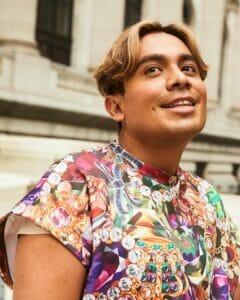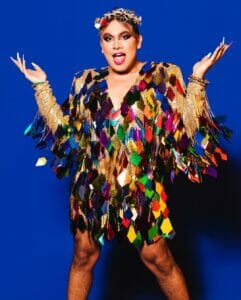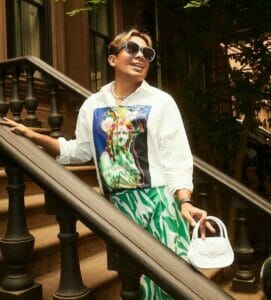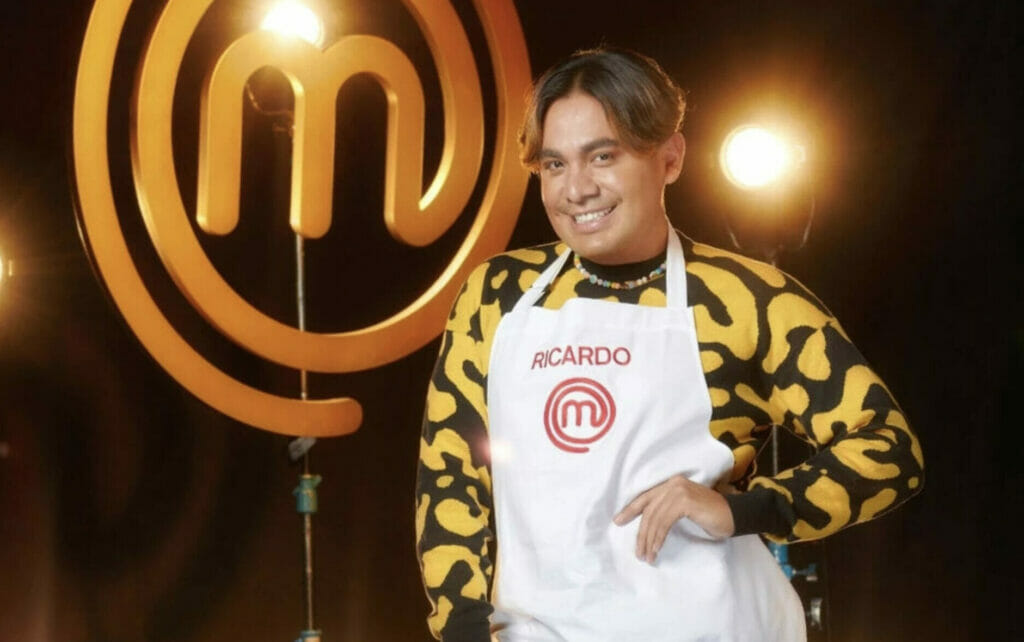 GLAAD contributor Enrique Torre Molina is a diversity, inclusion and LGBTQ+ community activist, speaker and consultant working with companies, nonprofit organizations, government agencies and media. He co-founded Colmena 41, co-hosts the ‘Mafia Gay’ podcast and lives in Mexico City
GLAAD contributor Enrique Torre Molina is a diversity, inclusion and LGBTQ+ community activist, speaker and consultant working with companies, nonprofit organizations, government agencies and media. He co-founded Colmena 41, co-hosts the ‘Mafia Gay’ podcast and lives in Mexico City
Ricardo Peralta is a content creator, actor and winner of MasterChef Celebrity in Mexico, where he earned the nickname “la Loba.” Those who have followed him for over a decade know him as Pepe from Pepe & Teo, one of Mexico’s top LGBTQ+ YouTube channels. I especially loved him as Mateo on Supertitlán, the Mexican adaptation of Superstore. Watching him succeed on TV as himself — gay, brown, free, with an amazingly queer gender expression — and not someone’s punchline fills me with pride. Here’s the brief conversation we had.
You’ve been openly queer since you started doing videos, and in more recent years you also began to speak about your experiences facing racism. What made you feel comfortable, proud or responsible to address these issues?

I took it step by step. Obviously, being an LGBT person is complicated. It’s something I was stuck on since my childhood and adolescence. And I was able to work through it by making videos and learning from activists who helped me.
With racism (because Mexico doesn’t see itself as a racist country) I felt the same way. That conversation only started to open up a few years ago. It’s not that I wasn’t aware that I’m brown, but I suddenly began to understand that things were easier for white people. I knew I was different because I like men, but the privilege that comes with skin color became more clear to me later. And I’m a brave person. So, when I realized that certain spaces were not meant for me, I decided I would make them for me. I decided to talk about experiences of racism,
knowing other people would relate.
Thinking of diverse representation on streaming platforms and network television, what do you currently like and what needs to change still?

I think things are overall going better in the United States, thanks to the work of organizations like GLAAD. And I don’t say that because we’re speaking now – I always point it out. In Mexico, people still complain about the so-called “forced inclusion.” Even people who are racialized are not aware of their own internalized racism. And people with privilege do not want to share that privilege with others who don’t look like them, out of fear of losing it. I don’t think we’ve improved. Mexico will still take its time to understand that spaces in media are for everyone.
The fact that I won MasterChef Celebrity was complicated, considering the network where it ran [TV Azteca, the second-largest mass media company in the country], the fact that it was Sunday primetime, and me being brown and very effeminate. I earned the affection of so many people, and I’ve used that as part of my activism. I want to use that visibility to effect more changes in media.
What differences do you notice in the audiences of your different projects?

Straight people love LOL. I have had an LGBT fan base for more than 10 years. But when I joined the cast of that reality show on Amazon Prime I felt a drastic change. Heterosexual men would approach me to ask for a picture and congratulate me on my work. They said they loved it. With MasterChef Celebrity I was able to impact Mexican families. Last Christmas, I received many messages from LGBT people who would tell me about their grandmother who used to be homophobic and now she got them. She would tell them, “Oh, you’re like la Loba.”













